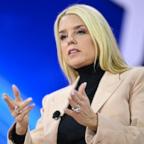UN climate conference delegates struggle to reach agreement on financing the climate fight
The U.N. climate conference in Azerbaijan was supposed to be the "finance COP." World leaders would determine how much fighting the climate crisis would cost and who would pay for it.
However, as COP29 winds down, many developing countries and nongovernmental organizations are dissatisfied with the current language in the proposed climate finance agreement.
In 2015, under the Paris Agreement, participating countries agreed to set a New Collective Quantified Goal, or NCQG, on climate finance in 2024 that would account for the needs of developing countries. Basically, how much money would each nation spend to support developing countries that are being disproportionately impacted by climate?
While several versions of the new NCQG have been proposed, a final agreement is still out of reach. The latest text calls for a $1.3 trillion climate finance investment annually until 2035 but only requires a $250 billion investment from developed countries.

"With a paltry climate finance offer of $250 billion annually, and a deadline to deliver as late as 2035, richer nations, including EU countries, and the United States are dangerously close to betraying the Paris Agreement," Dr. Rachel Cleetus, policy director for the Climate and Energy Program, Union of Concerned Scientists, said. "This is nowhere near the robust and desperately needed funding lower income nations deserve to combat climate change."
The latest NCQG language lays out a variety of funding sources that can play a part in reaching global climate finance goals, including multilateral development banks, or MDBs, that can distribute funds through grants and concessional loans for developing countries and adaptation projects.
However, the text does not make clear whether funds from MDBs are part of reaching the $250 billion goal or supplement that goal. It also includes provisions allowing for voluntary contributions from developing countries.
"The central demand coming into COP29 was for a strong, science-aligned climate finance commitment, which this appalling text utterly fails to provide," Cleetus said. "Wealthier nations seem content to shamefully renege on their responsibility and cave in to fossil fuel interests while unjustly foisting the costs of deadly climate extremes on countries that have contributed the least to the climate crisis."
World Resources Institute Global Climate, Economics and Finance Program Director Melanie Robinson agrees, releasing a statement Friday saying, "Developed countries should aim higher than the $250 billion they've put on the table."
"We should leave Baku with a goal that at least gets to $300 billion a year by 2035," Robinson said.
Tasneem Essop, executive director of Climate Action Network International, called the latest draft text "an insult to the people in the Global south."
"This latest draft text on the New Collective Quantified Goal is not just a joke -- it's an insult to the people in the Global South living on the front line of the climate crisis," Essop said. "In the meantime, millions of people's lives are at risk. We are angry, but we will keep fighting until the end."
-ABC News Climate Unit's Kelly Livingston and ABC News' Charlotte Slovin








